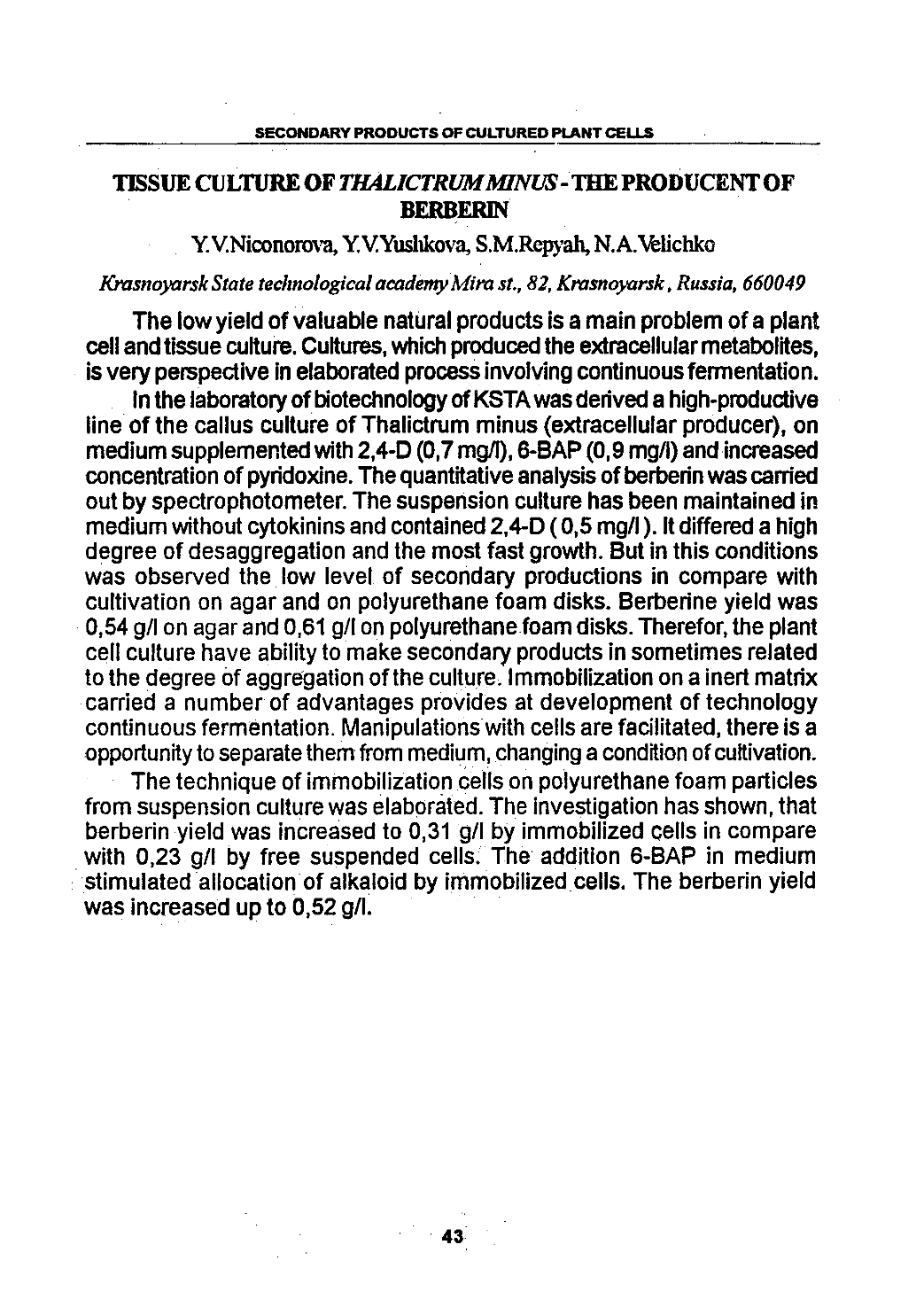

SECONDARY PRODUCTS OF CULTURED PLANT CELLS
TISSUE CULTURE OF
THALICTRUMMINUS -
THE PRODUCENT OF
BERBERIN
Y.V.Niconorova, Y.V.Yushkova, S.M.Repyah,N.A.Wichko
Krasnoyarsk State technological academyMira st., 82, Krasnoyarsk, Russia, 660049
The low yield o f valuable natural products is a main problem o f a plant
cell and tissue culture. Cultures, which produced the extracellular metabolites,
is very perspective in elaborated process involving continuous fermentation.
In the laboratory o f biotechnology of KSTA was derived a high-productive
line o f the callus culture o f Thalictrum m inus (extracellular producer), on
medium supplemented with 2,4-D (0,7 mg/l), 6-BAP (0,9 mg/l) and increased
concentration of pyridoxine. The quantitative analysis o f berberin was carried
out by spectrophotometer. The suspension culture has been maintained in
medium without cytokinins and contained 2,4-D (0 ,5 m g /l). It differed a high
degree o f desaggregation and the most fast growth. But in this conditions
was observed the low level o f secondary productions in compare with
cultivation on agar and on polyurethane foam disks. Berberine yield was
0,54 g/l on agar and 0,61 g/l on polyurethane foam disks. Therefor, the plant
cell culture have ability to make secondary products in sometimes related
to the degree of aggregation o f the culture. Immobilization on a inert matrix
carried a number of advantages provides at development o f technology
continuous fermentation. Manipulations with ceils are facilitated, there is a
opportunity to separate them from medium, changing a condition of cultivation.
The technique o f immobilization cells on polyurethane foam particles
from suspension culture was elaborated. The investigation has shown, that
berberin yield was increased to 0,31 g/l by immobilized cells in compare
w ith 0,23 g/l by free suspended cells. The addition 6-BAP in medium
stimulated allocation o f alkaloid by immobilized cells. The berberin yield
was increased up to 0,52 g/l.
43
Научная электронная библиотека ЦНСХБ









